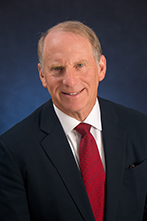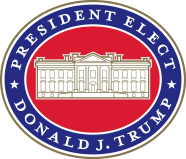Richard Haass
This article is outside of Ballotpedia's coverage scope and does not receive scheduled updates. If you would like to help our coverage scope grow, consider donating to Ballotpedia.
| Richard Haass | |
 | |
| Basic facts | |
| Organization: | Council on Foreign Relations |
| Role: | President |
| Location: | New York, N.Y. |
| Education: | •Oberlin College •Oxford University |
Richard Haass is the president of the Council on Foreign Relations, a 501(c)(3) nonprofit organization that aims to serve as a resource on foreign policy and international affairs. During the period of transition between the Obama and Trump administrations, Haass was reported to be in consideration for a high-level appointment in the Trump administration.[1][2]
Career
Haass earned a bachelor’s degree from Oberlin College. As a Rhodes Scholar, he completed a master’s degree and a doctorate degree from Oxford University.[1]
Government service
Haass' career in government service began as a legislative aide in the United States Senate. He went on to serve in the Department of Defense from 1979 to 1980 and in the Department of State from 1981 to 1985. He later served as a special assistant to former President George H.W. Bush (R) from 1989 to 1993. During this time, he served on the National Security Council as a senior director for Near East and South Asian affairs. Haass received the Presidential Citizens Medal in 1991 for his "contributions to the development and articulation of U.S. policy during Operations Desert Shield and Desert Storm."[1]
Haass returned to government service in 2001 as the director of policy planning for the Department of State, where he remained until 2003. In this role, he served as an advisor to former Secretary of State Colin Powell. Haass received the State Department’s Distinguished Honor Award for his work as the "U.S. coordinator for policy toward the future of Afghanistan and U.S. envoy to the Northern Ireland peace process."[1][3]
| Possible Trump appointee (first term) |
|---|

|
| During the 2016 presidential transition of power, Haass was reported to be in consideration for a high-level appointment in Donald Trump's (R) first term. |
Full list of possible appointees |
See also: Donald Trump's Cabinet, 2025-2026 |
Nonprofit sector
Haass previously served as the vice president and director of foreign policy studies at the Brookings Institution, a senior associate at the Carnegie Endowment for International Peace, and a research associate at the International Institute for Strategic Studies. He has taught as a visiting professor of international studies at Hamilton College and as a lecturer in public policy at Harvard University's Kennedy School of Government.[1]
Since 2003, Haass has served as the president of the Council on Foreign Relations, a 501(c)(3) nonprofit, nonpartisan think tank and membership organization that aims to serve as a resource on foreign policy and international affairs.[4]
Publications
Haas has published 12 books on foreign policy and international relations, including A World in Disarray: American Foreign Policy and the Crisis of the Old Order, as well as one book on management, The Bureaucratic Entrepreneur. He is also the author of numerous articles and op-eds and has been featured as a commentator for major media outlets, including MSNBC, PBS, and NPR.[1]
Donald Trump presidential campaign, 2016
According to The New York Times, Haas held a private briefing in the summer of 2015 with then-presidential candidate Donald Trump.[5]
"I respect Richard Haass, who’s on your show a lot," Trump stated during an interview on MSNBC in March 2016, "And I like him a lot. I have a few people that I really like and respect."[5]
Recent news
The link below is to the most recent stories in a Google news search for the terms 'Richard Haass'. These results are automatically generated from Google. Ballotpedia does not curate or endorse these articles.
See also
- Donald Trump potential high-level administration appointments
- Council on Foreign Relations
External links
Footnotes
- ↑ 1.0 1.1 1.2 1.3 1.4 1.5 Council on Foreign Relations, "Richard N. Haass," accessed December 1, 2016
- ↑ Council on Foreign Relations, "Frequently asked questions," accessed December 1, 2016
- ↑ Bloomberg, "Richard N. Haass," accessed December 1, 2016
- ↑ Council on Foreign Relations, "About CFR," accessed December 1, 2016
- ↑ 5.0 5.1 The New York Times, "Donald Trump Held Briefing With Richard Haass, Head of Council on Foreign Relations," March 3, 2016
| |||||||||||||||||||



